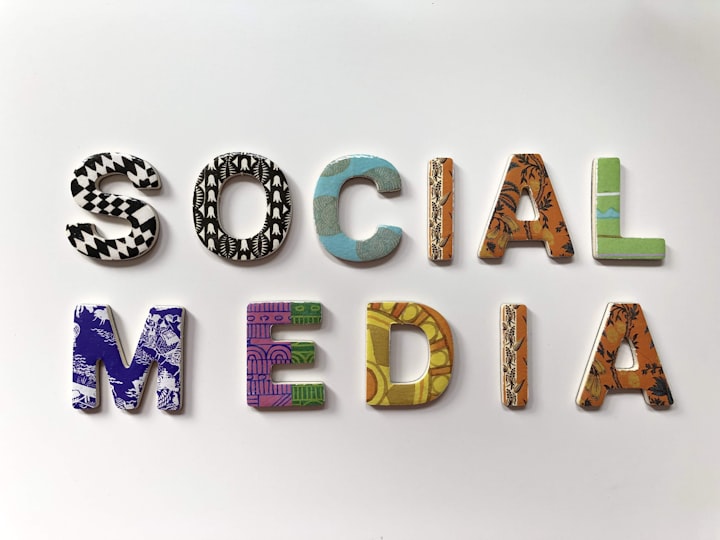The impact of social media on mental health
the bad effect of social media
Brief overview of the impact of social media on mental health
Social media has both positive and negative impacts on mental health. On the positive side, social media can provide a sense of community and connection, access to support and resources, opportunities for self-expression and creativity, and improved mental health awareness and education. However, there are also negative impacts on mental health, such as an increase in feelings of anxiety and depression, negative effects on sleep quality, cyberbullying and harassment, addiction and compulsive use, and comparison and self-esteem issues. It's important to be aware of these impacts and to use social media in a healthy way to avoid any negative effects on mental health.
Positive effects of social media on mental health
There are several positive effects that social media can have on mental health:
- Sense of community and connection: Social media can help people feel more connected to others, especially during times when they might feel isolated or alone. This can be especially helpful for people who have a hard time forming connections in person.
- Access to support and resources: Social media can provide people with access to mental health resources, including support groups, hotlines, and therapy options.
- Opportunities for self-expression and creativity: Social media can be a platform for people to express themselves and showcase their talents, which can help boost their self-esteem and sense of identity.
- Improved mental health awareness and education: Social media can help educate people about mental health issues and provide them with resources to better understand and cope with their own mental health.
Overall, social media can have a positive impact on mental health by promoting social connection, providing access to resources, and fostering self-expression and creativity.
Negative effects of social media on mental health
There are several negative effects that social media can have on mental health:
- Increase in feelings of anxiety and depression: Studies have shown that excessive social media use can be linked to increased feelings of anxiety and depression, especially among young people.
- Negative effects on sleep quality: Social media use, particularly before bedtime, can negatively impact sleep quality, leading to feelings of fatigue and irritability.
- Cyberbullying and harassment: Social media can provide a platform for cyberbullying and harassment, which can be extremely damaging to mental health and self-esteem.
- Addiction and compulsive use: Social media use can become addictive, leading to compulsive behavior and negative impacts on mental health.
- Comparison and self-esteem issues: Social media can lead to feelings of inadequacy and low self-esteem, as people compare themselves to others' curated and often unrealistic online personas.
It's important to be aware of these negative impacts of social media on mental health and to use social media in a healthy and mindful way to minimize their effects.
Factors that contribute to the impact of social media on mental health
There are several factors that contribute to the impact of social media on mental health, including:
- Social comparison theory: Social media can lead to social comparison, where people compare themselves to others on social media, which can lead to feelings of inadequacy and low self-esteem.
- The impact of social media algorithms and advertising: Social media algorithms and advertising can create an echo chamber that reinforces negative thoughts and feelings, leading to worsened mental health.
- The role of parental and societal influences: Parental and societal influences can impact how people use social media and can shape perceptions of self-worth and self-esteem.
- The importance of self-regulation and awareness: People who are aware of the potential negative impacts of social media and who practice self-regulation are less likely to experience negative effects on their mental health.
Overall, understanding the factors that contribute to the impact of social media on mental health can help people make more informed decisions about their social media use and take steps to protect and promote their mental health.
Best practices for using social media in a healthy way
Here are some best practices for using social media in a healthy way:
- Limit social media use: Limit the amount of time spent on social media, and take frequent breaks to prevent addiction and compulsive use.
- Be mindful of social comparison: Be aware of social comparison and take steps to mitigate its negative effects by focusing on one's own strengths and values.
- Follow positive accounts and communities: Follow accounts and communities that promote positivity and healthy behaviors, and unfollow or mute accounts that perpetuate negativity or harm.
- Practice self-regulation: Be aware of one's emotional state when using social media and take steps to self-regulate and cope with negative emotions.
- Promote self-care and mental health: Use social media as a tool for self-care and mental health by seeking out resources and support groups.
- Disconnect before bed: Avoid using social media before bed to promote good sleep hygiene.
Overall, practicing healthy social media habits can help promote mental health and well-being. It's important to be aware of the potential negative impacts of social media and to take steps to use it in a mindful and healthy way.
Conclusion
Social media has become an integral part of our lives, but it's important to recognize that it can have both positive and negative impacts on mental health. While social media can help promote social connection, self-expression, and mental health awareness, it can also lead to feelings of anxiety and depression, cyberbullying, and addiction. It's important to practice healthy social media habits by limiting social media use, being mindful of social comparison, following positive accounts, and promoting self-care and mental health. By being mindful of these factors and practicing healthy social media habits, we can better protect and promote our mental health in the age of social media.
About the Creator
Rehmat Well-being
Transform your life with us! we empower you with health tips, mindfulness practices, and a holistic approach to a happier life. Nourish your mind, body, and soul and live your best life. Join the journey to radiant health and joyous living!







Comments
There are no comments for this story
Be the first to respond and start the conversation.